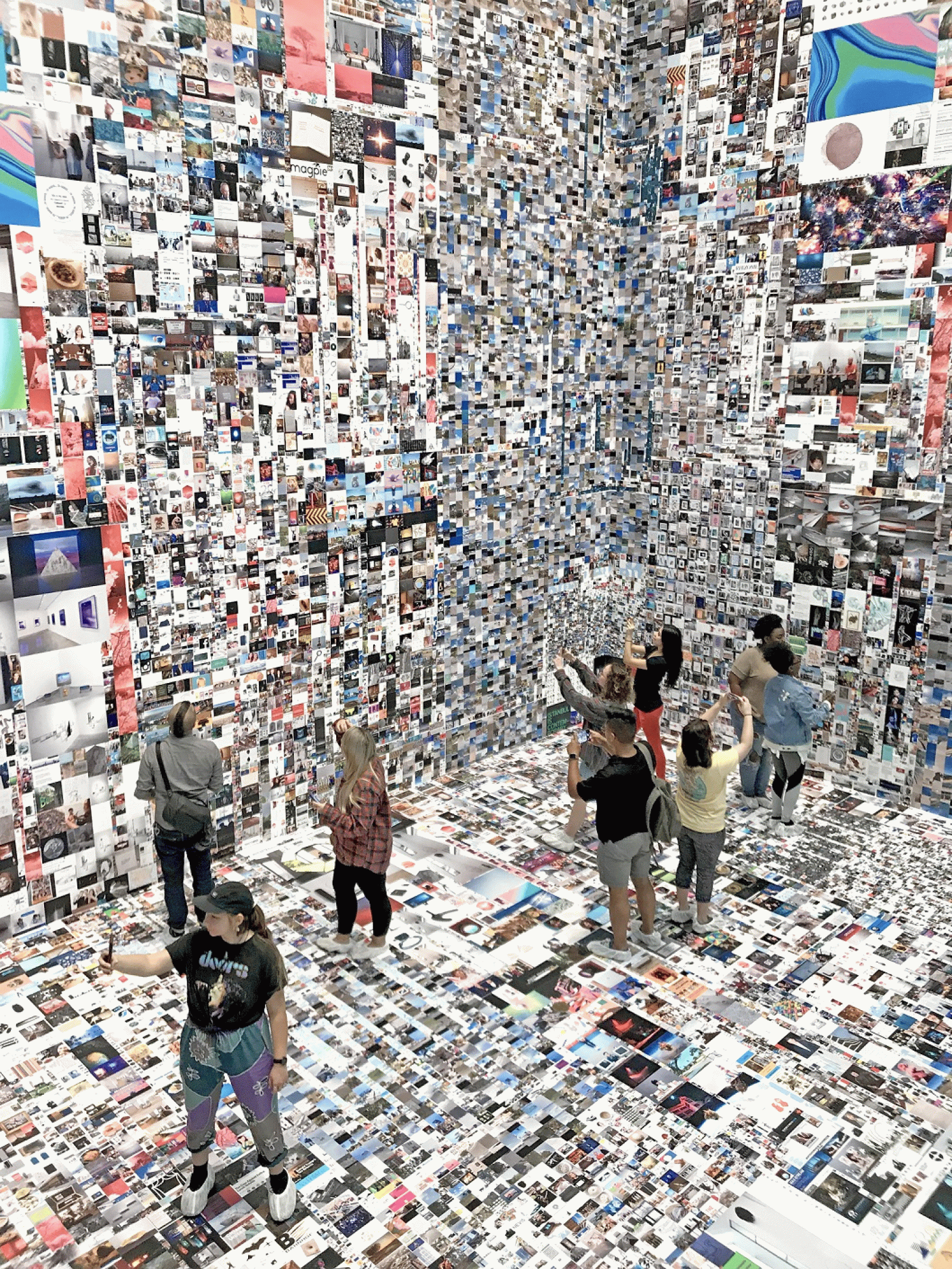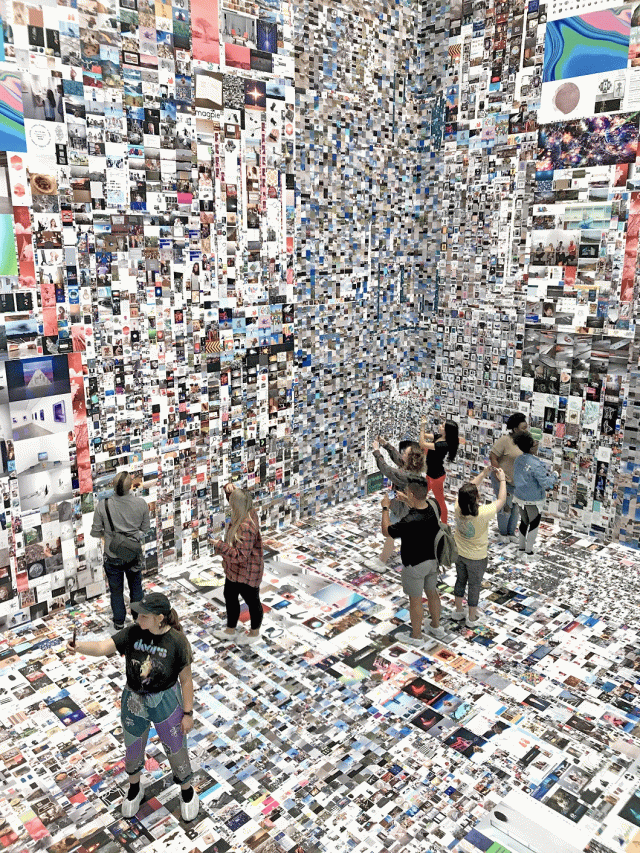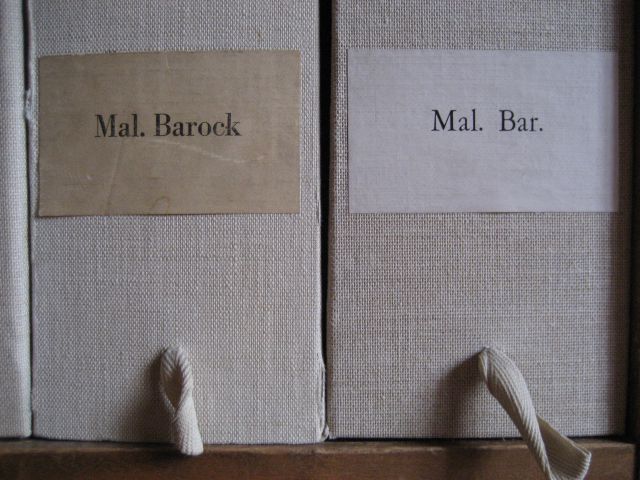Tagung
Photo Archives VIII:
The Digital Photo Archive.
Theories, Practices and Rhetoric
Organised by the Department of Media Studies at the University of Basel and the Kunsthistorisches Institut in Florenz – Max Planck Institute

Evan Roth, Since You Were Born (2021), Red Brick Art Museum, Beijing, China. Photo courtesy of the artist
The recordings of Photo Archives VIII are available on Vimeo: https://vimeo.com/showcase/9527877
The current ‘archival moment’ (Daston 2017) is characterised by the unprecedented online access to visual material, but also by deep concerns about loss of information. Scholars are confronted with the limitless production and circulation of (sometimes self-produced) digital images, as well as with the fragility of aggregated image clusters. Digitisation and digital photography are established practices, and numerous methods and approaches to the storage and retrieval, indexing, interoperability and sustainability of digital image collections have been tested, debated, applied, expanded, questioned and discarded. These technological developments mean that more and more people all over the world are involved in creating, manipulating and collecting images. Images and metadata are copied, scraped, aggregated and rearranged in feeds, clusters and databases, both for commercial or scientific purposes. Moreover, big visual data serve as the basis for developing computer vision techniques. While these multifaceted collections evade canonical notions of the archive, archival structures and practices have become a nexus of the post-digital condition.
Building on the Photo Archives conference series, this gathering aims to examine and reflect on the practices and ideologies of digital photo archives within the framework of the recent history of photography. It seeks to challenge the idea of documentary values connected to photography and archives at a time when visual imagery is completely malleable; it aims at revisiting past narratives, speculating on future uses as well as enhancing best practices. Issues include the economies and ecologies of digital photo archives, the politics of taxonomies and metadata, the multiplication of voices, as well as questions of scale and user experience.
Please note that the conference is held in English.
Organised by:
Estelle Blaschke, Professor of Media Studies at the University of Basel
Costanza Caraffa, Head of the Photothek, Kunsthistorisches Institut in Florenz – Max Planck Institute
Programme
Thursday May 5, 2022
Opening
6:00 – 6:15 p.m. Opening remarks: Estelle Blaschke and Costanza Caraffa
6:15 – 7:30 p.m. Keynote and Discussion
Michelle Henning (Liverpool University)
“Unseen and unheard”: Photography in the Atmosphere
Friday May 6, 2022
1:00 – 1:30 p.m. Introduction: Estelle Blaschke and Costanza Caraffa
Panel One: Rethinking Agencies and Taxonomies
Chair: Costanza Caraffa
1:30 – 2:15 p.m. Joan M. Schwartz (Queen’s University)
“More is Less”: Search and Research in (Digital) Photo Archives
2:15 – 3:00 p.m. Maria Creech (Cardiff University, Imperial War Museums)
‘The Archivist’s Invisibility’: Rethinking Interpretation in the Digital Photographic Archive
Short Break (30 min.)
Panel Two: New Technologies, New Theories?
Chair: Ute Holl
3:30 – 4:15 p.m. Marlene Manoff
Digital Materiality and the Evolution of Archival Theory
4:15 – 5:00 p.m. Felix Oke, Israel Saibu (Anchor University Lagos)
Curating Digital Images: the Ojude Oba Cultural Festival on Social Media
Short Break (15 min.)
Panel Three: Qualities and Quantities of Metadata
Chair: Estelle Blaschke
5:15 – 6:00 p.m. Henning Lautenschläger (University of Basel)
Renaissance or Revenant? – The Prokudin-Gorskii Collection at the Library of Congress between De-Materialization, Re-Materializations, and Digital Cultural Practices
6:00 – 6:45 p.m. Anna Näslund Dahlgren (Stockholm University)
Platformisation and the Logic of the Digital Photo Archive
7:30 p.m. Conference Dinner
Saturday May 7, 2022
Panel Four: Combining Fragments and Voices
Chair: Lorena Rizzo
12:00 – 12:45 p.m. Kylie Thomas, Kees Ribbens (NIOD Institute for War, Holocaust and Genocide Studies, Erasmus University of Rotterdam)
An Orphaned Digital Photographic Archive? The WWII Image Bank and ‘Fostering’ History
12:45 – 1:30 p.m. Ulrike Felsing, Max Frischknecht, Adrian Demleitner (University of Bern)
Inclusive and Participatory Interfaces for Photo Archives as New Research Opportunity
Short Lunch Break (30 min.)
Panel Five: Archival Visibilities / Invisibilities
Chair: Costanza Caraffa
2:00 – 2:45 p.m. Isa Wortelkamp (Leipzig University)
Image-Body. Visibilities and In-visibilities of Dance Photography in Digital Archives
2:45 – 3:30 p.m. Paolo Favero (University of Antwerpen)
The Act of Images: Making, Viewing, Storing and Sharing Images in a Post-Digital World
Short Break (15 min.)
Panel Six: Curating the Politics of the Archive
Chair: Olga Osadtschy
3:45 – 4:30 p.m. Mariana Martínez (Metropolitan Autonomous University)
The Disappearance of the Images, the Disappearance of the Bodies
4:30 – 5:15 p.m. Lee Douglas (IHC-NOVA University)
Between Forensic Evidence and Sensorial Memories: Digital Technologies, Photo Archives, and Narrating Experiences of Displacement and Diaspora
5:15 – 5:30 p.m. Closing Remarks
05. – 07. Mai 2022
eikones – Center for the Theory and History of the Image
University of Basel, Switzerland
Hinweis
Diese Veranstaltung wird durch Fotografien und/oder Videoaufnahmen dokumentiert. Falls es nicht Ihre Zustimmung findet, dass das Kunsthistorische Institut in Florenz Aufnahmen, auf denen Sie erkennbar abgebildet sein könnten, für die Veranstaltungsdokumentation und Öffentlichkeitsarbeit (z.B. Social Media) verwendet, bitten wir um eine entsprechende Rückmeldung.




